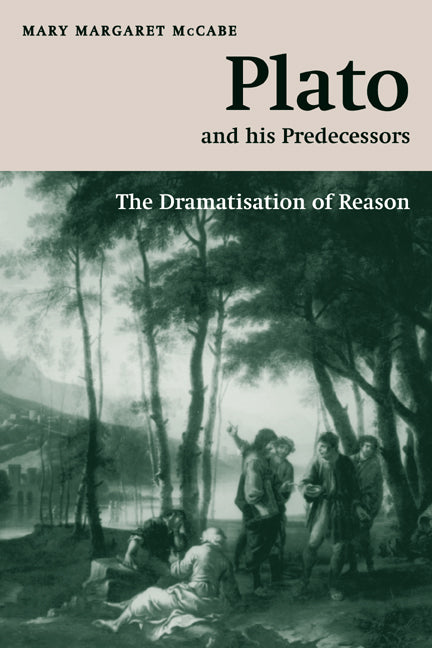Freshly Printed - allow 8 days lead
Couldn't load pickup availability
Plato and his Predecessors
The Dramatisation of Reason
A consideration of how Plato represents his philosophical predecessors in a late quartet of dialogues.
Mary Margaret McCabe (Author)
9780521033794, Cambridge University Press
Paperback / softback, published 8 March 2007
328 pages
22.8 x 15 x 2 cm, 0.492 kg
'… a splendid book, sometimes difficult, never dull, attractively written, a triumph of philosophical scholarship and philosophical imagination. No student of the later Plato can afford - or could wish - to neglect it.' International Journal of Philosophy
How does Plato view his philosophical antecedents? Plato and his Predecessors considers how Plato represents his philosophical predecessors in a late quartet of dialogues: the Theaetetus, the Sophist, the Politicus and the Philebus. Why is it that the sophist Protagoras, or the monist Parmenides, or the advocate of flux, Heraclitus, are so important in these dialogues? And why are they represented as such shadowy figures, barely present at their own refutations? The explanation, the author argues, is a complex one involving both the reflective relation between Plato's dramatic technique and his philosophical purposes, and the very nature of his late philosophical views. For in these encounters with his predecessors we see Plato develop a new account of the principles of reason, against those who would deny them, and forge a fresh view of the best life - the life of the philosopher.
Preface
1. Introduction
Part I. The Opponents: 2. Measuring sincerity
3. Missing persons
4. Can the Heraclitean live his Heracliteanism?
Part II. Teleology: 5. Myth and its end
6. Outwitting the cunning man
Part III. Reason and the Philosopher: 7. Tracking down the philosopher
8. The sufficiency of reason
9. Meeting Socrates' challenge
Bibliography
General index
Index locorum.
Subject Areas: Western philosophy: Ancient, to c 500 [HPCA]


